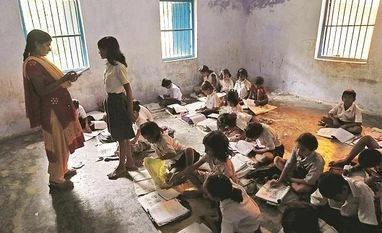Elaborating on the reforms, School Education Secretary Anita Karwal said at a briefing, "Board exams for classes 10 and 12 will be continued, but will be reformed to eliminate the need for taking coaching classes".
She further said, "Board exams will be redesigned to encourage holistic development and will also be made easier by testing core capacities and competencies. All students will be allowed to take board exams on up to two occasions during any given school year, one main examination and one for improvement, if desired. All students will take school examinations in classes 3, 5, and 8 which will be conducted by the appropriate authority".
A per the new policy, the 10+2 structure of school curricula is to be replaced with a 5+3+3+4 curricular structure corresponding to age groups 3-8, 8-11, 11-14 and 14-18 years respectively.
"This will bring the hitherto uncovered age group of 3-6 years under school curriculum, which has been recognized globally as the crucial stage for development of mental faculties of a child. The new system will have 12 years of schooling with three years of anganwadi and pre-schooling," she said
The new system will cover four stages -- Foundational Stage (three years of anganwadi or pre-school followed by classes 1-2), Preparatory Stage (classes 3-5), Middle Stage (classes 6-8) and Secondary Stage (classes 9-12).
"Students will have increased flexibility and choice of subjects so that they choose their own paths according to their talents and interests. There will be no rigid separations between arts and sciences, between curricular and extra-curricular activities, between vocational and academic streams.
To read the full story, Subscribe Now at just Rs 249 a month
Already a subscriber? Log in
Subscribe To BS Premium
₹249
Renews automatically
₹1699₹1999
Opt for auto renewal and save Rs. 300 Renews automatically
₹1999
What you get on BS Premium?
-
Unlock 30+ premium stories daily hand-picked by our editors, across devices on browser and app.
-
Pick your 5 favourite companies, get a daily email with all news updates on them.
Full access to our intuitive epaper - clip, save, share articles from any device; newspaper archives from 2006.
Preferential invites to Business Standard events.
Curated newsletters on markets, personal finance, policy & politics, start-ups, technology, and more.
Need More Information - write to us at assist@bsmail.in
)